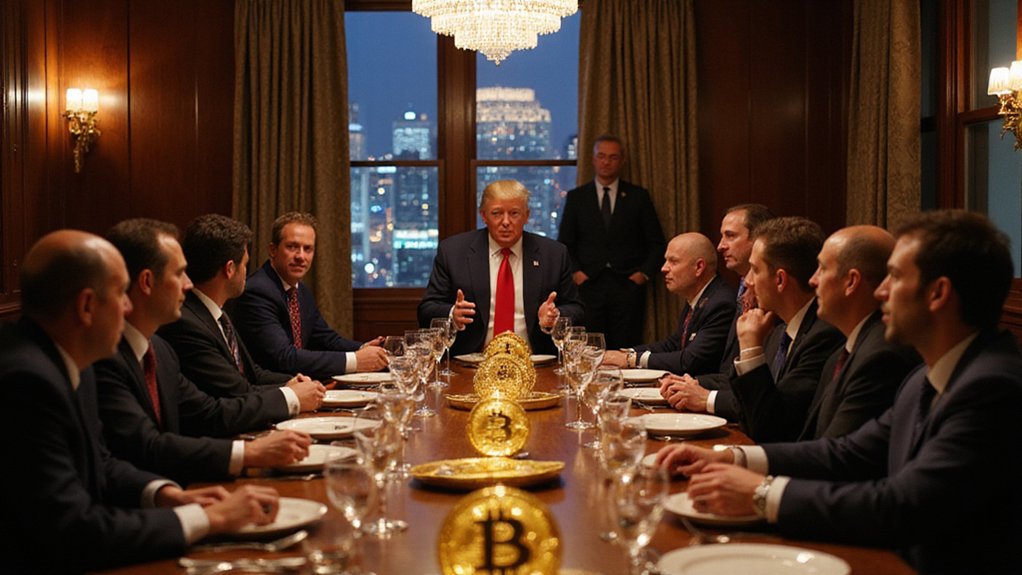The Trump administration has pivoted toward embracing cryptocurrency with the fervor of a recent convert, announcing support for a de minimis tax exemption that would allow small Bitcoin transactions to proceed without the byzantine reporting requirements that currently make buying a $5 coffee with crypto about as practical as filing a Schedule D for your lunch money.
White House Press Secretary Karoline Leavitt confirmed Trump’s backing during a July 17, 2025, press briefing, marking a remarkable evolution from his previous characterization of Bitcoin as a “scam against the dollar.” This newfound enthusiasm aligns with broader Republican efforts to establish crypto-friendly regulatory frameworks—a political calculation that recognizes the industry’s growing electoral influence and economic significance.
The proposed exemption coincides with Congressional momentum behind the GENIUS Act, which includes extensive crypto provisions and has cleared procedural hurdles in the House. Representative Max Miller (R-OH) is spearheading complementary proposals that would modernize wash sale rules for digital assets while clarifying tax treatment for mining and staking activities—legislative initiatives that address longstanding industry frustrations with regulatory ambiguity.
Industry leaders anticipate these reforms could transform crypto’s practical utility by eliminating the compliance burden that currently requires tracking every microtransaction for tax purposes. The current system effectively penalizes adoption by demanding meticulous record-keeping for trivial purchases, creating friction that undermines crypto’s fundamental promise of seamless peer-to-peer transactions.
Trump’s 2024 campaign promises included establishing a national Bitcoin stockpile and appointing crypto-friendly SEC leadership—commitments that signal a comprehensive policy reversal designed to “end Democrats’ crackdown on crypto.” This strategic repositioning reflects recognition that regulatory hostility has driven innovation offshore while American competitors embrace digital asset development.
The broader implications extend beyond tax policy convenience. Creating exemptions for small transactions could accelerate mainstream adoption by removing administrative barriers that currently make crypto payments impractical for everyday commerce. Miller’s framework also addresses small transactions by providing specific exemptions for minor crypto dealings that would otherwise burden taxpayers with disproportionate compliance requirements.
While uncertainty remains regarding implementation details, the legislative momentum suggests a fundamental shift toward viewing digital assets as legitimate financial instruments rather than speculative curiosities deserving regulatory skepticism. The regulatory landscape faces particular challenges given that meme coins have been excluded from securities regulations, creating a complex patchwork of oversight that lawmakers are attempting to address through comprehensive reform.
The crypto community’s enthusiastic reception underscores years of frustration with compliance complexity that has hindered the technology’s practical applications, potentially positioning these reforms as catalysts for broader economic integration.









